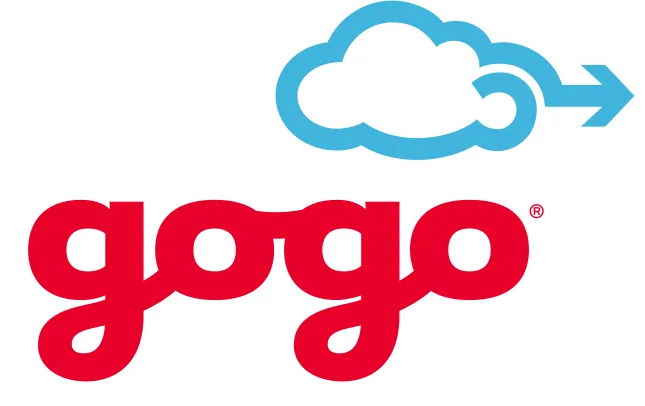Marketing execs: Human touch still matters as AI gains steam
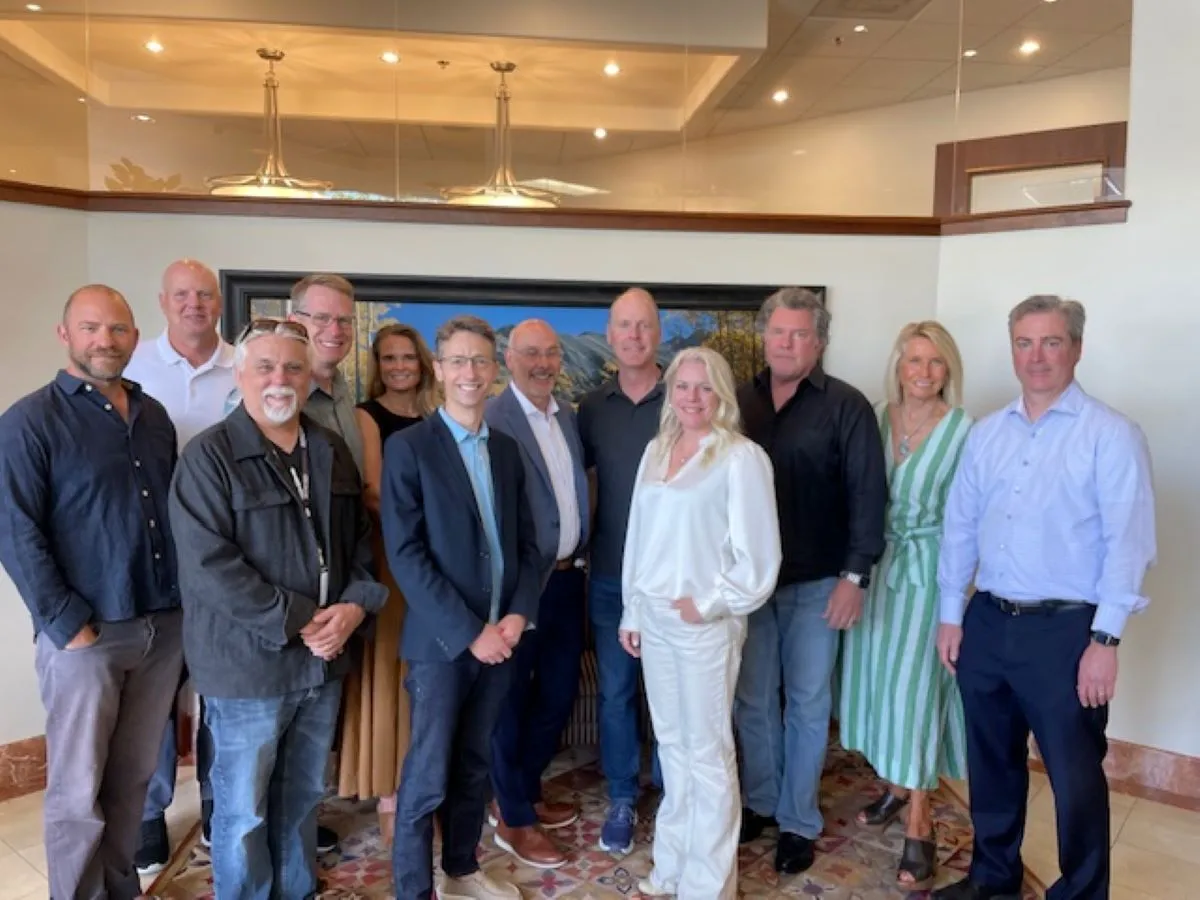
BOULDER — Artificial intelligence can generate new ideas, enhance companies’ understanding of their customers and generally streamline operations. However, executives from Boulder-area marketing, advertising and public relations firms agreed this week that the personal touch is still needed to guide clients through its use and keep it from getting out of hand.
AI helps programs and machines learn from experience, adjust to new inputs and perform human-like tasks, but those attending a BizWest CEO Roundtable on Tuesday said the marketplace will eventually decide how — and how much — it gets used.
“The audience will ultimately decide what they will accept, and we’re not there yet,” said Patrick Mallek, whose Mighty Fudge Studios describes itself as a “studio specializing in adult animation and Saturday morning-style cartoons for grownups.”
SPONSORED CONTENT
“The audience is still getting familiar with the technology,” he said. “Does the audience want a new Pixar movie completely done by AI, or are they going to want something more hands-on? We just don’t know yet.”
“In the course of our careers, there’s always these shiny objects that are put in front of us, like 3-D and augmented reality,” said Andy Nathan, founder and CEO of Fortnight Collective. “The jury is the consumer. I keep wondering if, three to five years out, we’ll say it was a huge thing and it’s still a thing but not ‘the’ thing.”
Don Poe, CEO of People Productions Media Services Inc., said the human touch will remain important in terms of leveraging the emerging technology for clients.
“Maybe by 2030 this could all switch, but at this point, maybe they can write a letter but they can’t do a campaign,” he said. “So how can we use AI to make their budgets a little bit lower, or give them three ideas versus one, to be faster and more nimble with it.
“That’s how I feel like we have a leadership role to show our clients, ‘Here’s how you can do it.’ We’re stewards of it, we know best practices, we’re using it in-house. We craft our own tools. Our clients aren’t nimble enough to do it,” Poe said. “How are they going to come up with a strategy for a whole quarter, get it through regulatory and legal, and get it approved?
“I’m viewing this from a position of strength,” he said. “As long as we don’t get bowled over by it, how can we be leaders in it so we can help our clients succeed.”
John Kadlic, founder and CEO of the Parallel Path health and wellness marketing agency, agreed that “AI still needs people to be successful.”
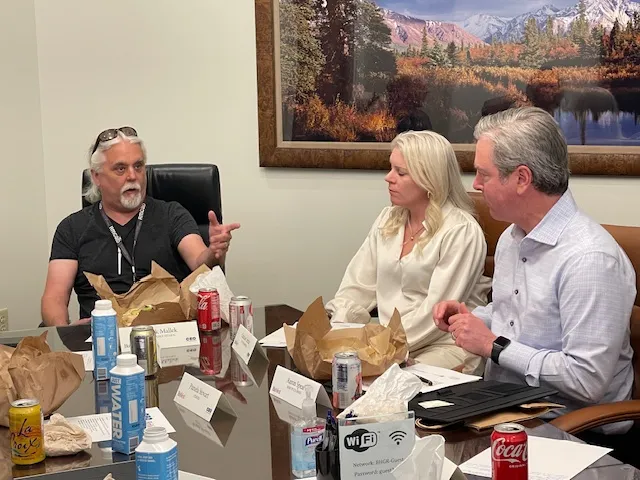
Clients, he said, “need somebody to be a trusted guide, because it’s new territory. There is a bunch of bullcrap that will go away or are fads, but there’s real stuff, too, in there. Trying to separate that is really the hard exercise. Companies don’t have dedicated resources, or they’re just unsure, or they’re going to play it safe and say we’ll get in the game two years from now because they don’t know where to go right now and are kind of uncomfortable, We’re trying to be that trusted guide that can take them there sooner and try some things.”
“Although machine learning and tools can create a thing, it can’t generate trust with your client,” said Thaddeus Napp, a partner at Vermilion Design and Digital. “So much of our work is really about proving that we did get the right idea, and then when we’re bringing our work back, that you feel that we understand you.”
AI has its place, but within reason, agreed Doyle Albee, president and CEO of the Comprise agency.
“It’s a great brainstorming partner,” he said. “If I tell it to write a news release, I think 98% of them are garbage. But if I say, ‘Hey, give me five headline ideas,’ just to help out with those kinds of things, it works really well.”
“I’d never ask it for a news release,” agreed Lindsay Sutula, founder and CEO of Top Fox Marketing, “but I would ask it for five different headlines or a lot of different options for something.”
Albee said the new tool is great for “using it to help you do things a little more quickly than you could on your own,” but cited a hypothetical example to show AI’s limits that made reference to the Berg Hill Greenleaf Ruscitti law firm, where Tuesday’s CEO Roundtable was held.
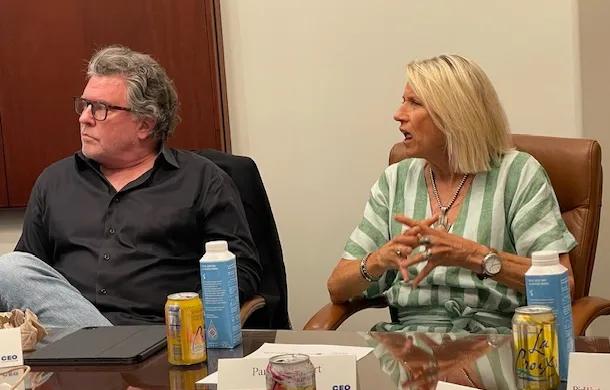
“The way I explain it to my clients is, ‘If I decide to sell you a car, and we go to ChatGPT to write a contract, we could say It looks like a contract, so let’s go for it,” he said. “But within six months we’re mad at each other and we take it to somebody in this building, they’re going to pick it to shreds.”
All agreed that the technology should be treated with caution. Nathan said “I’m sure there’s going to be a high-profile case around plagiarism or some intellectual-property issue,” and Poe said such considerations are forcing him to negotiate “weird” Master Services Agreement terms.
But Albee and Mallek noted that AI developers already are putting up some of their own guardrails.
“I was playing around with ChatGPT,” Albee recalled, “and my wife and I were arguing about song lyrics, so I said ‘What are the lyrics to it?’ And it came back with the first two lines of the song and then said ‘This violates our terms of service.’ It will not give you a complete song any more. So I thought, ‘Is it just this song?’ So I started putting in more song lyrics, and it would give me two or three lines and then cut me off.”
Mallek added that, “right now, we do have AI that can sniff out other AI.”
Issues with AI will pop up in unexpected places, Albee predicted.
“The other day I read an article and they were talking about what if you are having a Zoom conference with your client and you’re using an AI note-taker, as we do too, and you’re talking about an initial public offering that is absolutely top secret but two weeks away,” he said. “And one of these really smart people that hangs out in their basement writes a little thing that says ‘I want every conversation that mentions IPO,’ and gets a 24-hour head start? I never thought about that.
“It’s listening, and who’s watching the watchman?
“Even the Council of Public Relations came out and said, ‘You must disclose every time you use AI to your client,’ which I thought was the dumbest thing I’d ever read,” Albee said. “It’s like, ‘Hey, Mr. Client, I use spell check on this, and that’s AI.’ So, let’s use our heads.”
The line between what’s created by humans and what’s created by artificial intelligence grows blurrier by the day, the executives said.
“We can tell, but the audience doesn’t know yet,” Mallek said. “We’re hoping for a standard in our industry that labels something ‘AI’ or ‘not AI,’ or a stamp that says ‘Human Made.’”
In some respects, Kadlic said, the technology isn’t all that new.
“Google and Facebook and all these companies have had algorithms that can automate your campaigns for years now. That’s AI. That’s not new,” he said. “They’re getting better and more advanced, but you still need a human to get the optimal results. But AI’s been around for a long time. It’s just now fashionable to talk about it.”
Like any emerging form of automation, concerns arise about whether AI will erase the need for as many workers. Pamela Stewart, founder and president of Essenza Communications and Coaching, echoed that uncertainty.
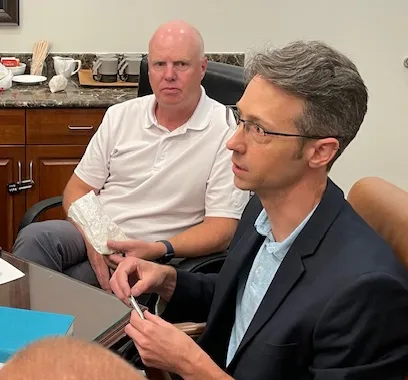
“Everything we do with our clients has to do with storytelling,” she said, “so at what point is AI going to overtake how well we can tell a story? At what point is it going to steamroll into ‘We don’t need that person any more’?”
That question has yet to be fully answered, Nathan said.
“Big Fortune 500 companies sometimes are experimenting with AI and storyboards,” he said, “and what I’m gathering is that it hasn’t gone exceptionally well.”
Still, he added, “it’s hard to put bigger budgets in front of your clients when they think, ‘Oh, we can just tinker with AI ourselves.’”
“The production side is definitely going to be replaced,” Mallek said. “If you’re building a video game, you don’t need a team now to create great characters. This thing will do it for you.”
In some cases, however, artificial intelligence has created employment, such as the new director of AI at Kadlic’s Parallel Path.
“We hired a dedicated role for this just last week,” Kadlic said. “This person is helping us move beyond dabbling to doing when it comes to the integration of AI into all facets of our agency.
“And then he’s also a consultant and adviser to clients, because one of the things we’ve heard from clients is, ‘We have everyone pitching us AI at the moment, all the software platforms, all the agency partners, and what we don’t have is a truth teller to decipher the BS from the reality, and where to go next.’
“So this guy and his team will be able to advise clients and say, if I’m you, I’d start here and move there and move there, depending on what your business goals are, and not do these big leaps of faith based on dreamer types of concepts that aren’t grounded on some form of business reality,” Kadlic said.
“He’s got a client obligation to be a billable resource, in agency terms, to go out and advise clients and say ‘Your experience could be optimized and your engagement with your customers could be better off if you embrace AI for this step or this step or this step in your journey.’
“So we’re trying to be helpful to clients but also improve our business at the same time and trying to get the dual benefit out of that,” he said. “Some of it is to help us internally and operationally rethink everything about how we conduct business and where can automation give us an advantage, where is it not 100% people-dependent to help us advance our company.
“We’re doing it all across the board. It’s not just in the creative realm, which is a lot of the stuff that’s gotten attention.”
Besides the creative process, Sutula said, “we use it to keep our team in the loop a lot more. We use Otter.AI or something like that for all our transcripts, and then there’s a much more seamless handoff between the sales team and the production team because you can actually get the transcript and pull summaries.”
Kadlic ticked off other positive benefits as well.
“There’s software out there that allows you to scrape Reddit in about 10 minutes and get you consumer sentiment on any topic of interest,” he said. “So rather than go out and do customer research from day one, you can at least get a quick read on one channel and what conversations are going on in that space.”
Maybe the technology’s name itself is a hindrance to its wider adoption, Stewart said.
“They don’t call it ‘artificial intelligence’ any more amongst the people in the know,” she said. “They call it ‘added intelligence’ because AI needs some PR spin. People think of ‘artificial’ as being bad. The people in that machine are trying to change the perspective and perception around AI to be something that is not to be feared, it’s going to be helpful. It’s the magician, not the wand.”
Still, all agreed, live human influence still matters most, both with clients and inside their organizations.
Nathan cited the “things I’ve learned just going from a parking lot to a client’s office or driving to a meeting,” and noted that people just emerging from COVID-19 lockdowns into a world of remote work “just don’t have that. It’s reduced to a Zoom square. It’s a real disservice to the young employees.”
“When our marketing team is there and our events team is there, that’s when the magic happens,” added Joseph Hovancak, vice president for economic vitality at the Boulder Chamber and executive director of its Boulder Chamber Economic Council. “That’s when you sit down and the ideas are flowing and you push them to push the envelope. I find having them there is very valuable.”
Napp said his agency has gone fully remote. “It has challenged us in terms of more junior talent,” he said, “but we’ve been fortunate to have really strong senior-level folks that are able to operate in a remote world.”
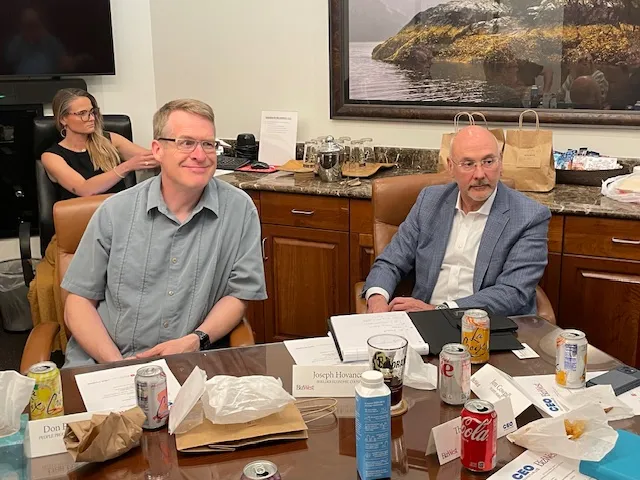
That need for person-to-person interaction may be generational as well in some surprising ways, Mallek said.
“Not only do I work with young creatives but I also teach them now” as an adjunct professor at Rocky Mountain College of Art and Design in Lakewood, he said. “Our students, especially the younger ones, hate anything online. They don’t want to be on social media, they don’t want to learn online. They want to be in class. My seniors don’t even show up for class. My freshmen, I can’t get them out of my class. They stay after class. They talk to each other. They’re dying for interaction.
“These are the kids that were in high school during COVID and lost that,” he said. “Their work in a classroom is so much better because they’re bouncing ideas off of each other. Online is just typing stuff in and uploading files, maybe on a Zoom chat, The interaction’s not there.”
As artificial intelligence becomes more mainstream, Poe noted, “it is really interesting to see, year to year, how our sentiment has changed in all of our attitudes.”
That’s certainly true for Mallek.
“Last year I was ready to move to Antarctica,” he said.
But by taking on the role of a teacher, he said, “I’ve been pivoting to the creative development side. I’ve steered my boat into a safe harbor, so I’m going to hunker down and wait for the storm to pass.”
The implications of AI for businesses of all types are a story still being written, Mallek said.
“Everybody’s aware of it,” he said. “We’re all excited and nervous at the same time. It’s kind of like the day before your wedding.”
—
Also attending the Roundtable were representatives of its sponsoring organizations: Ashley Cawthorn, director of marketing for the Berg Hill Greenleaf Ruscitti LLP law firm; Aaron Spear, market president for Bank of Colorado; and Jim Cowgill, managing partner for accounting firm Plante Moran.
BOULDER — Artificial intelligence can generate new ideas, enhance companies’ understanding of their customers and generally streamline operations. However, executives from Boulder-area marketing, advertising and public relations firms agreed this week that the personal touch is still needed to guide clients through its use and keep it from getting out of hand.
AI helps programs and machines learn from experience, adjust to new inputs and perform human-like tasks, but those attending a BizWest CEO Roundtable on Tuesday said the marketplace will eventually decide how — and how much — it gets used.
“The audience will ultimately decide what they will accept, and…




